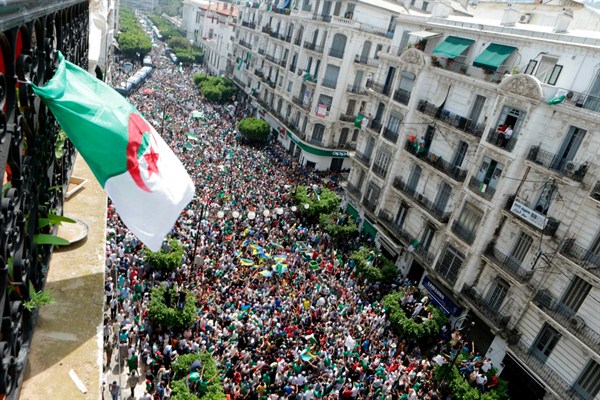ALGIERS—The chanting groups of protesters quickly swelled into a massive stream, moving downwards along Rue Didouche Mourad, one of the city’s main boulevards. In the summer heat, they wore Algerian flags as cloaks and carried hats and water bottles. Some walked with children on their shoulders, their young faces painted the green, white and red of the national flag. Homemade protest signs written in Arabic and French appeared to float above the slow-moving crowd. The signs and rallying cries called for a civilian state instead of a military one, and for the liberation of political prisoners. They praised the country’s many “martyrs” and derided its aged politicians.
Security forces were there too, occupying the streets of Algiers in hundreds of blue police vans. Plainclothes officers walked within the crowd, as helicopters circled overhead.
Despite an official ban on demonstrations in Algiers since 2001, protests like this one, on July 5, have become a regular sight in the city since February, when then-President Abdelaziz Bouteflika announced he would seek a fifth consecutive term. A month later, facing growing pressure from the street, Bouteflika backed off, and by April he had resigned—pushed aside by other powers within the Algerian regime. But the protests continued, demanding the reform of the entire entrenched political system.

